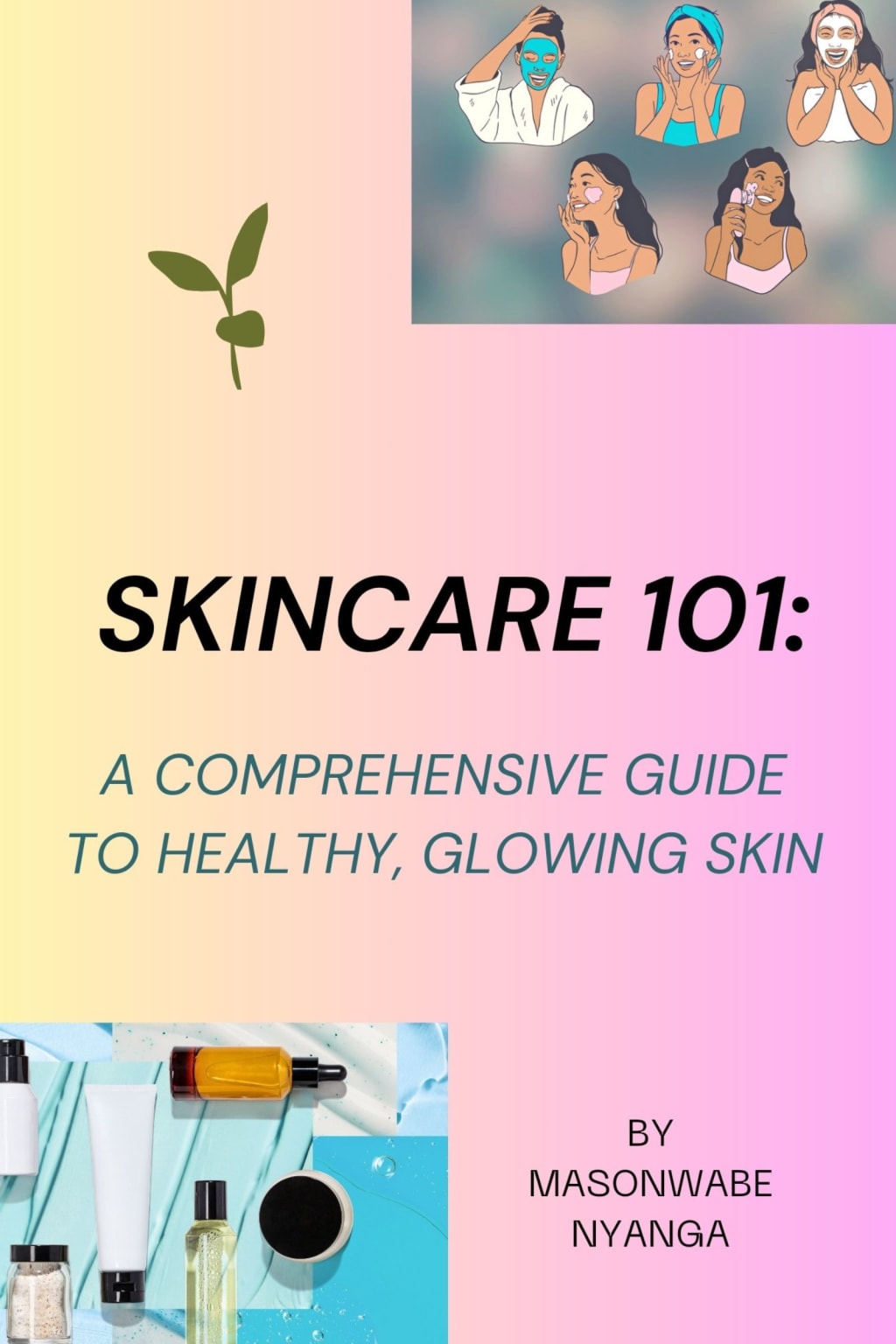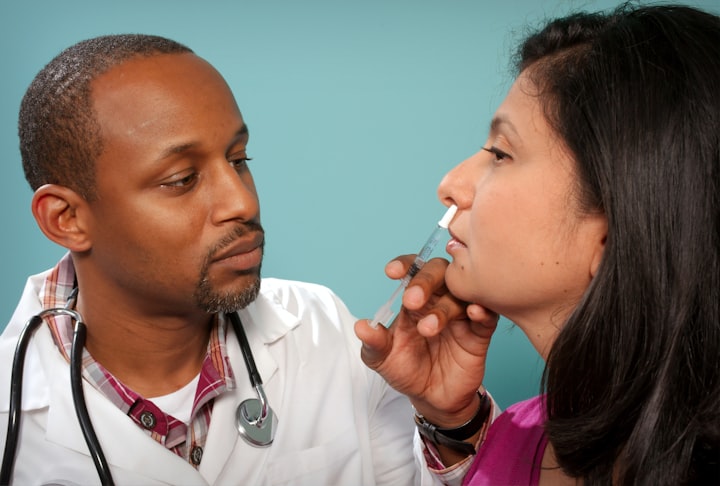Understanding Your Skin Type
There are generally five different skin types: normal, dry, oily, combination, and sensitive. Understanding your skin type is the first step in developing a skincare routine that works best for you. Here's an overview of each skin type:

• Overview of different skin types
There are generally five different skin types: normal, dry, oily, combination, and sensitive. Understanding your skin type is the first step in developing a skincare routine that works best for you. Here's an overview of each skin type:
There are generally five different skin types: normal, dry, oily, combination, and sensitive. Understanding your skin type is the first step in developing a skincare routine that works best for you. Here's an overview of each skin type:
1. Normal skin: This skin type has a balanced amount of oil and moisture, and generally has few imperfections. Normal skin is typically smooth, even toned, and has small pores.
2. Dry skin: Dry skin lacks moisture and can feel tight, itchy, and rough. This skin type may also be prone to flakiness, redness, and fine lines. Dry skin typically has small pores and may feel tight after cleansing.
3. Oily skin: Oily skin produces an excess amount of oil, which can lead to clogged pores, acne, and a shiny appearance. This skin type is typically thicker in texture and has larger pores.
4. Combination skin: Combination skin is a mix of both oily and dry skin. This skin type typically has an oily T-zone (forehead, nose, and chin) and dry cheeks. Combination skin may be prone to blackheads, whiteheads, and acne.
5. Sensitive skin: Sensitive skin is easily irritated by products, weather, and environmental factors. This skin type may be prone to redness, itching, and dryness.
In addition to the five main skin types, some people may also have specific skin conditions, such as acne-prone skin, rosacea, eczema, or psoriasis. These conditions may require specialized skincare routines and treatments.
It's important to note that while understanding your skin type is helpful, it's not the only factor to consider when developing a skincare routine. Factors such as age, gender, genetics, lifestyle, and environmental factors can also impact your skin's health and appearance.
Furthermore, it's possible to have more than one skin type, particularly in the case of combination skin. For example, you may have oily skin in some areas, such as the T-zone, but dry skin on the cheeks. In this case, it's important to tailor your skincare routine to meet the specific needs of each area of your face.
Ultimately, understanding your skin type and its unique needs is the first step in developing a skincare routine that works best for you. By taking the time to learn about your skin and adopting healthy habits, you can achieve healthy, glowing skin that you feel confident in.
• How to determine your skin type
Determining your skin type is important in developing an effective skincare routine. Here are some tips to help you determine your skin type:
1. Normal skin: Normal skin typically has a balanced amount of oil and moisture, with no signs of flakiness or excess oil. If your skin is smooth, even toned, and has small pores, you likely have normal skin.
2. Dry skin: If your skin feels tight, itchy, and looks flaky, you likely have dry skin. Dry skin may also appear dull and rough in texture.
2. Oily skin: Oily skin tends to produce excess oil, which can lead to clogged pores and a shiny appearance. If your skin feels greasy and appears shiny, particularly in the T-zone (forehead, nose, and chin), you likely have oily skin.
3. Combination skin: Combination skin is a mix of both dry and oily skin. If you have an oily T-zone but dry cheeks, you likely have combination skin.
4. Sensitive skin: Sensitive skin can be difficult to determine, as it can react to a variety of products and environmental factors. If your skin is easily irritated and prone to redness and itching, you may have sensitive skin.
To determine your skin type, start by washing your face with a gentle cleanser and patting it dry with a clean towel. Wait for 30 minutes without applying any products and observe how your skin feels and looks. If your skin feels balanced with no signs of dryness or oiliness, you likely have normal skin. If your skin feels tight, looks flaky, or has a dull appearance, you likely have dry skin. If your skin feels greasy and looks shiny, particularly in the T-zone, you likely have oily skin. If your skin has an oily T-zone but dry cheeks, you likely have combination skin. If your skin is easily irritated and prone to redness and itching, you may have sensitive skin.
Once you have determined your skin type, you can select skincare products and develop a routine that is tailored to your skin's unique needs.
It's important to keep in mind that your skin type may change over time, particularly as you age, experience hormonal changes, or are exposed to different environmental factors. It's a good idea to periodically re-evaluate your skin type to ensure that you are using the most effective products and routines.
In addition to the observation method described above, you can also consult with a dermatologist or esthetician to help determine your skin type. These professionals can perform a skin analysis using specialized equipment to measure factors such as oil production, hydration levels, and skin texture.
By determining your skin type and understanding its unique needs, you can select the most effective products and develop a skincare routine that helps to achieve healthy, glowing skin.
In addition to selecting the right skincare products and routine based on your skin type, it's also important to consider other factors that can impact your skin's health and appearance. These include:
1. Age: As we age, our skin becomes thinner and loses elasticity, leading to wrinkles and fine lines.
2. Genetics: Your genetics can play a role in your skin type and how it ages.
3. Lifestyle: Factors such as diet, exercise, stress, and smoking can impact your skin's health and appearance.
4. Environment: Exposure to pollution, sun damage, and other environmental factors can contribute to skin damage and premature aging.
By taking a holistic approach to skincare, you can address these factors and promote overall skin health. This can include adopting healthy lifestyle habits, such as eating a balanced diet, staying hydrated, getting enough sleep, and managing stress. You can also protect your skin from environmental damage by wearing sunscreen, avoiding smoking, and limiting exposure to pollutants.
Understanding your skin type is an important first step in developing a skincare routine that promotes healthy, glowing skin. By considering other factors that can impact your skin's health and taking a holistic approach to skincare, you can achieve optimal skin health and appearance.
Another important factor to consider when it comes to skin health is the use of high-quality skincare products that are suited to your skin type and needs. Skincare products can help to nourish and protect your skin, while also addressing specific concerns such as acne, aging, and dryness.
When selecting skincare products, it's important to look for ingredients that are effective and safe for your skin type. For example, individuals with dry skin may benefit from using products that contain ingredients such as hyaluronic acid and ceramides, which help to lock in moisture. Those with oily skin may benefit from using products that contain salicylic acid, which can help to unclog pores and reduce oil production.
It's also important to be mindful of the quality and source of the skincare products you are using. Look for products that are made by reputable brands and free from potentially harmful ingredients such as parabens, sulfates, and fragrances.
Finally, consistency is key when it comes to skincare. Developing a daily skincare routine that includes cleansing, moisturizing, and protecting your skin can help to promote overall skin health and prevent issues such as acne and premature aging. By taking a holistic approach to skincare that considers your skin type, lifestyle factors, and the products you use, you can achieve healthy, glowing skin at any age.
• Common skin concerns for each skin type
Here are some common skin concerns for each skin type:
1. Dry skin: Dry skin is characterized by a lack of moisture and can feel tight, itchy, and rough. Common concerns for individuals with dry skin include flakiness, dullness, and fine lines and wrinkles.
2. Oily skin: Oily skin is characterized by an overproduction of sebum, the skin's natural oil, which can lead to a shiny, greasy appearance. Common concerns for individuals with oily skin include acne, blackheads, and enlarged pores.
3. Combination skin: Combination skin is characterized by both dry and oily areas, with the T-zone (forehead, nose, and chin) being typically oilier than the rest of the face. Common concerns for individuals with combination skin include oiliness in the T-zone, dryness in other areas of the face, and uneven skin tone.
4. Normal skin: Normal skin is well-balanced, with a healthy level of hydration and few noticeable concerns. However, even individuals with normal skin can experience issues such as dullness or uneven skin tone.
5. Sensitive skin: Sensitive skin is prone to irritation and can react negatively to certain ingredients or environmental factors. Common concerns for individuals with sensitive skin include redness, dryness, and flakiness.
It's important to note that these concerns can vary from person to person, even within the same skin type. If you are experiencing persistent or severe skin concerns, it's best to consult with a dermatologist or esthetician to determine the underlying cause and develop an effective treatment plan.
It's worth noting that some skin concerns may require more specialized or targeted treatments. For example, severe acne may require prescription-strength medications, while skin conditions such as rosacea or eczema may require specialized skincare products and/or medical treatments.
In addition to targeted treatments, there are also several general skincare practices that can help to promote healthy, vibrant skin. This includes protecting your skin from the sun by using sunscreen and wearing protective clothing, staying hydrated by drinking plenty of water, eating a balanced diet rich in fruits and vegetables, getting enough sleep, and avoiding smoking and excessive alcohol consumption.
Taking care of your skin involves a combination of understanding your skin type, being aware of potential skin concerns, adopting healthy lifestyle habits, and using quality skincare products that are suited to your needs. By prioritizing your skin's health and wellness, you can achieve a radiant, youthful complexion that reflects your overall wellbeing.
In the general skincare practices I mentioned earlier, there are also several other ways you can support the health and appearance of your skin. These include:
1. Exfoliation: Regular exfoliation can help to remove dead skin cells and promote cell turnover, which can improve the texture and tone of your skin. However, it's important to be gentle when exfoliating and avoid over-exfoliating, which can lead to irritation and sensitivity.
2. Hydration: Keeping your skin hydrated is crucial for maintaining its health and vitality. This can be achieved by using moisturizers and serums that are formulated to hydrate and nourish your skin, as well as drinking plenty of water throughout the day.
3. Stress management: Stress can have a negative impact on your skin, leading to inflammation, breakouts, and other concerns. Finding ways to manage stress, such as through exercise, meditation, or other relaxation techniques, can help to support your skin's health and appearance.
4. Professional treatments: In addition to at-home skincare practices, there are also several professional treatments that can help to improve your skin's health and appearance. These may include facials, chemical peels, microdermabrasion, and other specialized treatments that can target specific concerns.
Ultimately, taking care of your skin is an ongoing process that requires attention, effort, and patience. By adopting healthy skincare practices and seeking professional guidance when needed, you can achieve the beautiful, radiant complexion you deserve.
It's also worth noting that some skincare ingredients can be particularly beneficial for certain skin types or concerns. For example, those with dry skin may benefit from using products that contain hyaluronic acid, which helps to hydrate and plump the skin. Those with oily skin may benefit from using products that contain salicylic acid, which helps to control oil production and prevent breakouts.
Other popular skincare ingredients include vitamin C, which can brighten and even out skin tone, and retinoids, which can improve the texture and appearance of the skin. However, it's important to be cautious when introducing new skincare ingredients into your routine, as some may be irritating or cause allergic reactions.
Finally, it's important to remember that skincare is not just about achieving a certain appearance or standard of beauty. Taking care of your skin is also about promoting your overall health and wellness and recognizing that your skin is a reflection of your internal wellbeing. By prioritizing your skin's health and taking care of yourself both inside and out, you can achieve a radiant, youthful complexion that reflects your overall vitality and wellbeing.
Another important aspect of skincare is being mindful of the environment and how our daily habits may impact the health of our skin. For example, exposure to pollution and other environmental toxins can lead to premature aging, uneven skin tone, and other skin concerns.
To mitigate the negative impact of environmental factors on our skin, it's important to take steps to protect our skin. This may include wearing a hat and protective clothing when spending time outside, using a physical sunscreen to protect against UV rays and pollution, and washing your face thoroughly at the end of the day to remove any pollutants or dirt that may have accumulated on your skin.
In addition to environmental factors, other lifestyle habits can also have an impact on the health and appearance of our skin. For example, smoking has been linked to premature aging and a dull, lackluster complexion, while excessive alcohol consumption can lead to dehydration and inflammation.
By being mindful of these environmental and lifestyle factors and taking steps to protect our skin, we can support its health and promote a youthful, radiant complexion. Ultimately, taking care of our skin is not just about achieving a certain look, but also about promoting our overall wellbeing and enjoying healthy, glowing skin for years to come.






Comments
There are no comments for this story
Be the first to respond and start the conversation.